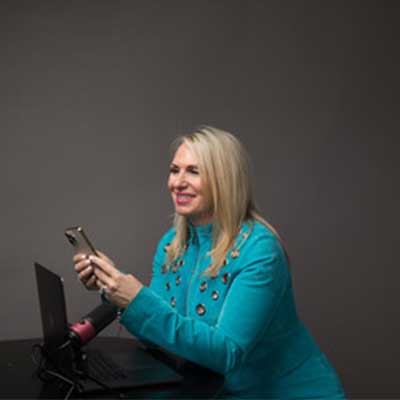The power of names…and what happens when you forget one

For those of you that follow my blogs or have watched my business grow, you’ll know that I love facilitating.
Every month, I jet around the globe facilitating different groups; I also facilitate a lot virtually (which is a different skill entirely and something we actually teach too).
I run strategy development sessions with tech start-up teams, war gaming sessions with consumer products behemoths, problem solving sessions with energy companies, team bonding sessions with media agencies, pre-mortems with banks, board meetings for law firms, townhalls for drinks companies, design sessions for automotive companies, team development sessions for mining companies, pricing workshops for nurseries, ways of working meetings for education charities and so much more.
In addition we run lots of soft skills/leadership training sessions for all our clients (we seem to have quite a few consulting firms on our books for these) where we help future leaders develop their strategic thinking, communication skills, influencing, storytelling, facilitation, negotiating, listening, personal impact and so much more.
As you can imagine, during the last 3.5 years alone since I set up Shiageto Consulting, I have met a lot of people in these sessions. It’s a real pleasure to meet them and I love learning all about them and what they do.
In fact, with some of my clients, where I continue to work with teams on an ongoing basis, I naturally develop great long-term relationships.
However I also deliver a lot of one-off sessions and in these it is harder to build a meaningful relationship with each participant.
What’s this got to do with names?
No matter whether the session is a one-off or part of an ongoing piece of work, something that is vital to having an effective session is the facilitator learning participants names very quickly.
It’s something I learnt from my days as a school teacher; your ability to connect and make an impact is vastly improved by using people’s names. [Day 1 of any new school year was the most challenging, as you faced over 200 hundred students who all knew your name and often discipline/attentiveness hinged on you knowing each of theirs.]
In fact, during training sessions in particular I will make a point of highlighting how important names are to participants and teach them a few tricks on how to learn names quicker so that by the end of the first hour you can call everyone in a room by their first name (even if there are 40 participants).
So, what’s this about you forgetting a name?
With one of my professional services clients, I run training across their cohorts. There’s New Joiner training for new analysts, New Manager training for those embarking on their first project leadership roles, Partner and Principal training to help those who are shaping the firm and needing to make more of an impact in the market, and more.
I’ve been working with this firm for several years and invariably I begin to see the same participants as they move through their career.
And this is where my story takes off:
I was recently over in Oman delivering a week’s training for this client and was grabbing lunch on the first day when I heard someone shout “Hey Faris, so good to see you again”
Looking up, I recognised the person’s face but I just couldn’t remember his name (no matter how hard I tried).
“Oh my god!” he said. “Don’t tell me that you’ve forgotten my name. You, who told us all how important remembering names is.”
He was absolutely right, I felt embarrassed 😳.
Even more so when he began telling everyone over lunch about how funny it was that I forgot his name and the fact that he could remember my name.
It’d only been 6 months before that I had met him, so I should really remember his name. Or so that’s what my brain kept telling me.
What did I do about it?
I realised that I was at a crossroads. Quickly I narrowed down the options before me:
- Apologise profusely to the person, try and make it up to them and move on trying to utilise new techniques to not just learn names when facilitating but to get them to stick long after
- Make excuses and try to detract (or even worse pushback) on my error so that it would seem that I wasn’t the one to have got it wrong
- Accept the fallacy of not being able to remember the names of everyone I’d ever facilitated and laugh about it
A younger-me may have picked option 1 or 2 but I in fact went for option 3.
There is nothing wrong with making the odd mistake; in fact, it makes us more human. What’s more, ironically, was that this incident gave us something new to build a relationship on (I can almost guarantee that I won’t forget his name again) and I decided to incorporate this story in my facilitating (and now in my blogs) as a useful lesson.
What’s my key takeaway?
We all err from time to time, especially when trying to match our words with our actions. The much more important thing than the actual mistake is what you do about it afterwards:
- Do you accept that we’re all human and move on or do you dwell on it consistently? [I mean no one can remember everyone’s names]
- Do you learn and adapt or do you cover up and deflect?
- Do you make the most of the situation and make a positive where there once was a negative?
I encourage you to try your best to get the most in terms of learnings, opportunities and reflections out of any error.
To paraphrase the great Nelson Mandela: “It’s not win or lose; it’s win or learn”.
At the end of the day, we will all face challenges similar to this so good luck however you handle it….. oh and it doesn’t hurt to have a little trick to help other people remember your name.
Mine has always been: “Hi, I’m Faris; it’s like the capital of France but with an F instead of a P!” It seems to work a treat…
Faris is the CEO and Founder of Shiageto Consulting, an innovative consultancy that helps firms and individuals sharpen their effectiveness.
Success = IQ x EQ x FQ




























Already a Member? Login Here.
Not Yet a Member? Join the Conversation Today!